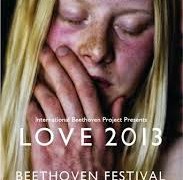Why we played without pay in Chicago
mainOur exposure of Chicago’s non-paying Beethoven Festival has drawn all manner of confessions from musicians who took part. It’s not just the injury of being ripped off by the organiser, but the added mistrust of discovering that some of your colleagues were paid while you were not.
Here’s a pungent, highly readable account from Ellen McSweeney, who’s no great fan of Slipped Disc and seems unsure to be glad or sad that we lifted the lid on this scam. Read Ellen here.

Sample:
Why were the wronged musicians and their friends still so quiet? And, come to think of it, why did we maintain silence for nine months as we awaited sums of money that, to us, make or break our ability to pay the rent?
For me, the story of the Beethoven Festival is a story of vulnerability: my own individual vulnerability, that of my colleagues, and that of our entire musical community. Much of the most artistically adventurous work in Chicago isn’t unionized, and we take a leap of faith every time we work for each other.





For me, the most interesting aspect of the article are the questions it raises about why classical musicians remained so uniformly quiet about the situation. Obvious reasons are listed, such as wanting to support the festival, and fear of not being paid at all if they complained. But is there perhaps a larger picture?
NewMusicBox also published a couple articles about the “Klinghofer” broadcast cancellation, and even encouraged commentary from the readers. New Music USA , which hosts the site, has a few thousand members, and the site is widely read by new music folks, but there were less than 10 responses. Most musicians seem to find the cancellation unjustified and harmful, but it seems almost no one wanted to stick their neck out, much less support their colleague, John Adams. (A post I sent in was blocked by the moderators. I don’t know why.)
When the ADL successfully lobbied in 2006 to have a scheduled lecture by academic Tony Judt at the Polish Consulate of New York cancelled, over a hundred of colleagues in the humanities signed a letter protesting what they viewed as unjustified censorship. This is notable because Judt’s political stances and public statements are far more controversial than those of “Klinghofer,” or of Adams and Goodman. The context and the letter can be found here:
http://www.nybooks.com/articles/archives/2006/nov/16/the-case-of-tony-judt-an-open-letter-to-the-adl/
What defines the difference between the Judt and “Klinghofer” situations? Why did the academics protest, while classical musicians remain silent? Is it just that academics have tenured jobs while the freelance musicians have to worry about the tentative networks that formulate their incomes? Is this reinforced because classical musicians are more-or-less conditioned to conform, remain silent, and follow orders? Is it something about how from our earliest training we are taught not to break ranks and keep in step? Is it something about the mental and social conditioning created by the authoritarian and hierarchical structures of the symphony orchestra?
Or are these aspects of our art of no meaningful significance? Whatever, I wish I could explain the behavior of classical musicians, who when compared to other kinds of artists are often notable and relatively unique for their conformity and obedience.
I just read in the LA Times about four prominent groups that have protested against the cancellation of the broadcast of “Klinghoffer”: The PEN American Center, The National Coalition Against Censorship, the London-based human rights organization Article 19*, and the New York Times Editorial Board. Perhaps this offers meaningful context to the fact no classical music organizations have protested, including New Music USA.
I found one classical music organization that has protested: The National Opera Association. They were one of eleven signatories of a joint statement presented by the National Coalition Against Censorship. The statement, which is very good, and the names of the other ten signatories can be found here:
http://ncac.org/incident/joint-statement-on-the-metropolitan-opera-decision-to-cancel-death-of-klinghoffer-international-live-screenings/
The statement notes that 2000 HD screenings in 65 countries were cancelled. This must represent a considerable financial loss for the Met.
“The contractor, an admired mentor with whom I have a frank rapport, told me the number, but also offered that I might want to refrain from such questions in the future. Asking about pay, he suggested, could make me look like money was all I cared about. In his mind, I’d violated a norm. It was almost as if he were surprised I didn’t trust him.”
There is so much wrong with this, I hardly know where to begin. The pay should ALWAYS be made clear up front. Freelancers must schedule their time wisely to make a living. They need to know what each engagement pays to make a smart decision about which one to accept. Of course, this is not a problem when the gig is handled through the union – the approximate amount can be worked out based on published rates – but it sounds like that isn’t always the case in Chicago. In my city, nearly all the reputable gigs are union. I have never had a problem getting paid, and I have never had any fear of asking questions, either.
I’d suggest that the writer reconsider who her trusted mentors are. A true friend would encourage caution when it comes to one’s livelihood, especially for a younger, less established musician. You have to protect yourself! This Beethoven Festival gig is worth exactly what it paid – nothing.
And I still don’t believe that Monsieur Lepauw is doing anything particularly noble or worthy of defending. As I said earlier, I think this is a vanity festival for a wealthy dilettante pianist who would otherwise be accompanying college voice recitals.
I doubt the one anecdotal example of her mentor defines the norm for Chicago. In the comments on NMBx to her article, a musicologist said “Europe” is even worse about paying. That’s 742 million people in 47 countries. He must have a lot of experience. Ah, the temptation of broad conclusions…